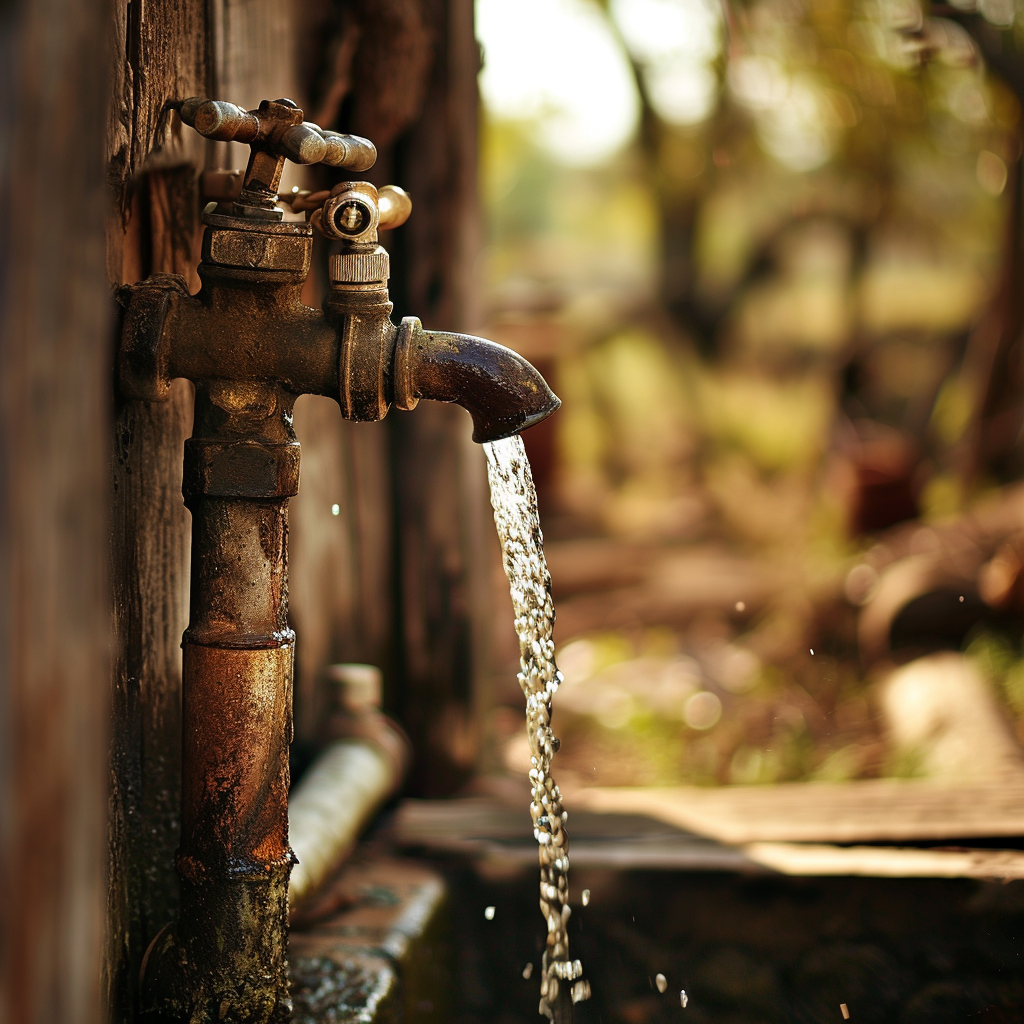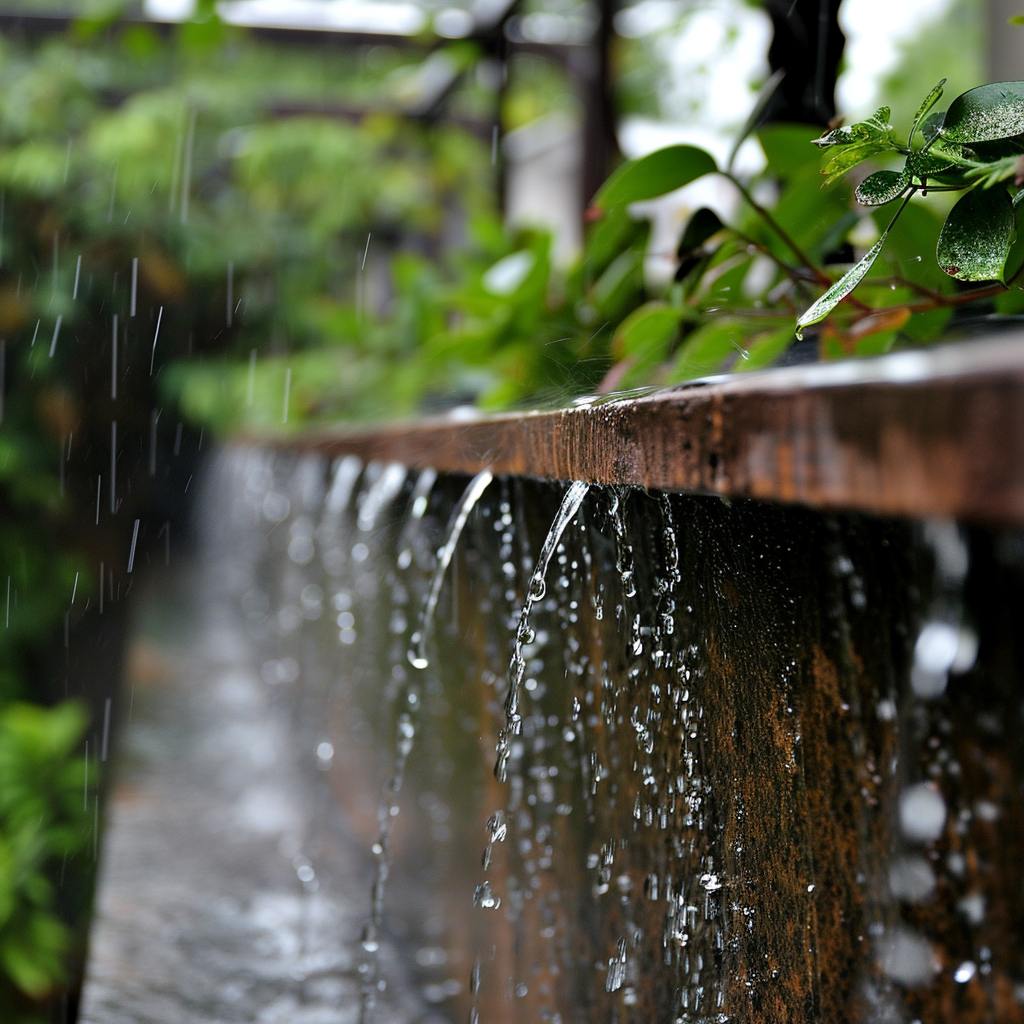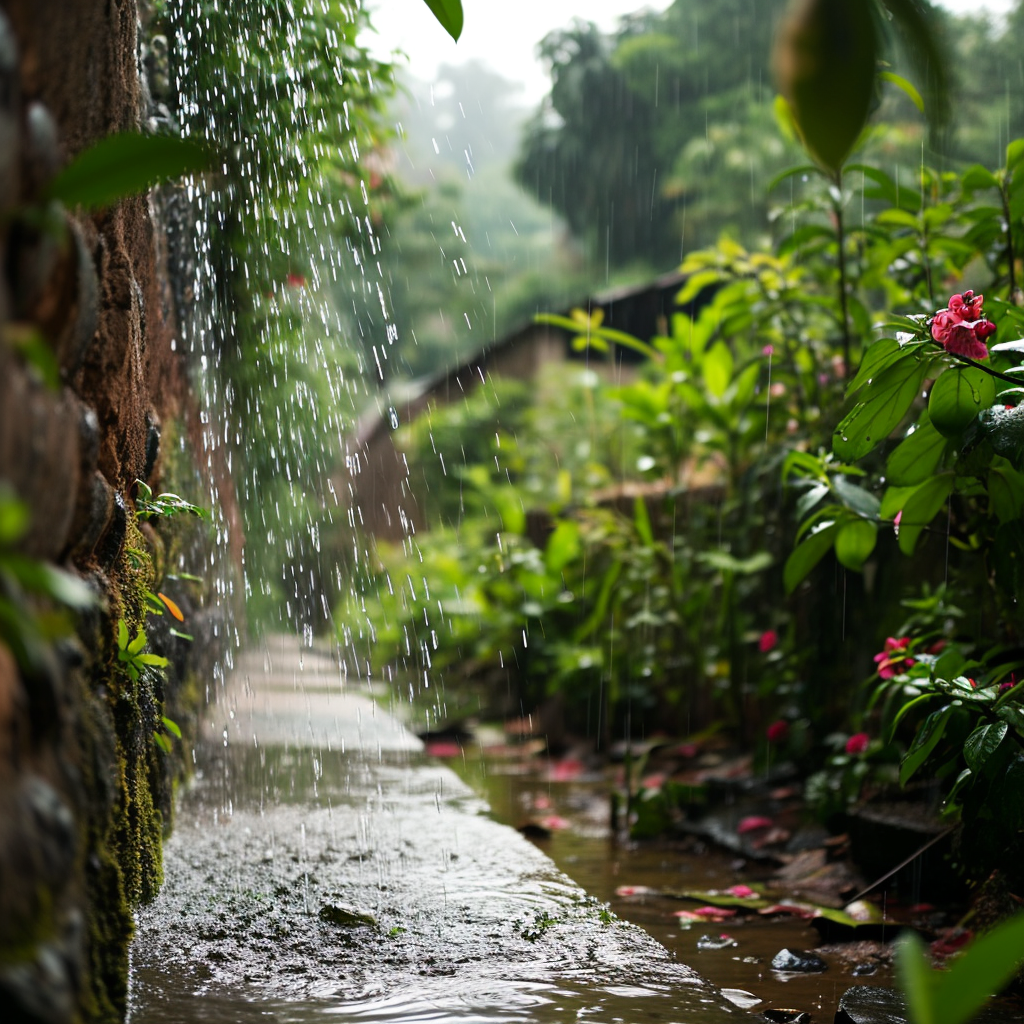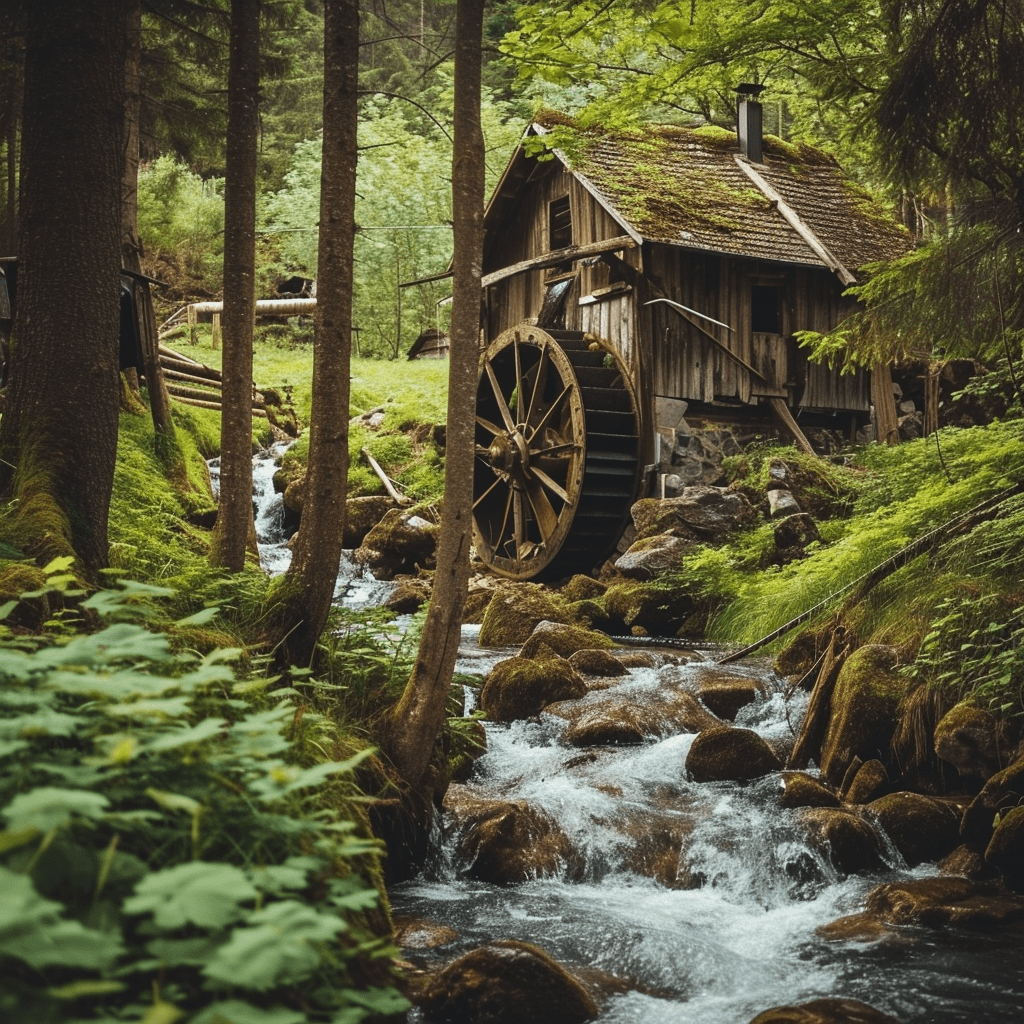So, you’re interested in living off the grid? That’s awesome! One of the main challenges of living off the grid is figuring out how to have a reliable and sustainable water source. I mean, water is essential for our daily lives, right? So, How do you run water off the grid? Well, in this article, we’re going to delve into some water solutions that can help you live self-sufficiently and comfortably in your off-grid abode.
When it comes to running water off the grid, there are a few options to consider. One popular choice is collecting rainwater. You can set up a rainwater catchment system that collects and stores rainwater from your roof. This water can then be filtered and used for various purposes like drinking, cooking, and bathing. It’s a pretty simple and eco-friendly way to have a steady water supply without relying on municipal sources.
Another water solution for off-grid living is drilling a well. Now, this option requires some upfront investment and expertise, but it can provide you with a reliable source of underground water. With a well, you can draw water from the ground using a pump system and use it for all your water needs. It’s like having your very own private water source right in your backyard.
In addition to rainwater catchment systems and wells, there are also options like using natural water sources such as creeks or rivers. Of course, this might not be feasible for everyone, depending on their location and accessibility to these water sources. But if you have access to a nearby creek or river, you can set up a filtration system to purify the water and make it suitable for drinking and everyday use.
So, there you have it! These are just a few water solutions to consider if you’re planning on living off the grid. In the upcoming article, we’ll dive deeper into each option, exploring the pros and cons, as well as some practical tips for implementation. Stay tuned to learn more about how you can have a sustainable and reliable water supply while living off the grid!
Living off the grid is becoming an increasingly popular lifestyle choice for many individuals and families. Whether it’s to reduce their environmental impact, become more self-sufficient, or simply explore a more sustainable way of living, there are numerous reasons why people are opting for off-grid living. One of the key challenges of living off the grid is sourcing and managing water. In this article, we will explore the importance of water in off-grid living and discuss various water solutions that can help you achieve self-sufficiency in your off-grid lifestyle.
Understanding the Role of Water in Off-Grid Living
Water is an essential resource that we rely on for our basic needs. In off-grid living, where modern utilities like water infrastructure are not readily available, understanding the role of water becomes crucial. Water is needed for drinking, cooking, cleaning, bathing, and irrigation in off-grid homes. Without a reliable water supply, the off-grid lifestyle can become significantly more challenging.
The Challenges of Sourcing Water in an Off-Grid Setting
Sourcing water in an off-grid setting can be a complex and challenging task. Traditional water sources such as municipal water supply or wells may not be accessible or feasible in remote off-grid locations. This necessitates exploring alternative water solutions. The availability of water sources, quality, and sustainability must be carefully considered before settling on a specific water solution.

Multiple off grid water solutions available
In the realm of off-grid living, accessing and managing water requires innovative and diverse solutions. This section highlights multiple off-grid water solutions that cater to different needs and environments. First, rainwater harvesting, a sustainable and eco-friendly method, involves collecting rainwater from surfaces like roofs and storing it for later use. Second, well water provides a reliable source of groundwater, accessible through drilling and suitable for all domestic needs.
Another key solution is utilizing natural water sources, such as rivers, lakes, and streams, which, with proper filtration, can be excellent water supplies. Additionally, fog harvesting and air condensation offer alternative methods, especially useful in areas with limited conventional water sources. These methods, alongside innovative water conservation strategies and efficient storage and distribution systems, form the backbone of managing water in off-grid settings. Each solution presents unique benefits and challenges, and the choice often depends on geographical location, availability of resources, and individual preferences in off-grid living.
Rainwater Harvesting as a Water Solution
Rainwater harvesting is a popular water solution for off-grid living. It involves collecting rainwater runoff from roofs or other catchment surfaces and storing it for later use. Rainwater harvesting offers several benefits for off-grid living. It allows you to have a self-replenishing water source, reduces reliance on external water supplies, and conserves freshwater resources. To design an efficient rainwater harvesting system, factors such as the size of the roof, local rainfall patterns, and water storage capacity need to be taken into account.
The Benefits of Rainwater Harvesting in Off-Grid Living
Rainwater harvesting offers numerous benefits for off-grid living. Firstly, it provides a sustainable and reliable water source that is not dependent on external infrastructure. This is particularly important in off-grid settings where water scarcity may be an issue. Additionally, rainwater is generally free from chemicals and contaminants found in ground and surface water, making it a safe and healthy option for drinking and cooking. Moreover, rainwater harvesting promotes water conservation by reducing the demand for freshwater resources.
Designing an Efficient Rainwater Harvesting System
Designing an efficient rainwater harvesting system requires careful planning and consideration. Firstly, one must calculate the catchment area or the size of the roof from which rainwater will be collected. This will determine the amount of water that can be harvested. Secondly, a suitable storage system, such as water tanks, needs to be chosen to store the collected rainwater. Proper filtration and purification systems should also be integrated into the system to ensure the water is safe for consumption.

Well Water as an Off-Grid Water Source
Another reliable water solution for off-grid living is tapping into groundwater through wells. Well water offers several advantages for off-grid homes. It is usually abundant, readily available, and free from chemical treatments typically used in municipal water supplies. However, accessing well water requires drilling a well, which can be costly and time-consuming.
Tapping into Groundwater: The Advantages of Well Water
One of the main advantages of well water is its abundance. Groundwater reserves are often more plentiful than surface freshwater sources, making it a reliable option for off-grid living. Well water is also generally free from the chemicals and contaminants commonly found in surface water bodies. Moreover, well water can be used for various purposes such as drinking, bathing, and irrigation, providing a versatile water source for off-grid homes.
Maintaining and Testing Well Water Quality
To ensure the quality and safety of well water, regular maintenance and testing are essential. Wells should be inspected and cleaned periodically to prevent the buildup of sediments or potential contamination. Water testing should be conducted regularly to check for any bacterial, chemical, or mineral contaminants. It is also advisable to install filtration and purification systems to further enhance the quality of well water.
Purifying and Filtering Off-Grid Water
Regardless of the water source, ensuring clean drinking water is paramount in off-grid environments. Off-grid living often requires additional steps to purify and filter water to make it safe for consumption.
Ensuring Clean Drinking Water in Off-Grid Environments
Clean drinking water is crucial for maintaining good health, especially in off-grid environments where access to medical facilities may be limited. Waterborne diseases can pose significant risks in off-grid living settings. Therefore, it is necessary to implement proper water purification and filtration systems to eliminate harmful bacteria, viruses, and contaminants from the water.
Different Methods of Water Purification and Filtration
Various methods can be employed to purify and filter off-grid water. Boiling water is one of the most traditional and effective methods of killing bacteria and viruses. Chemical disinfection using chlorine or iodine tablets is another common method, especially in emergency situations. Filtration systems, such as activated carbon filters and ceramic filters, can remove larger particles, sediments, and some contaminants. Advanced technologies like reverse osmosis and ultraviolet (UV) sterilization can also be utilized for comprehensive water treatment.

Utilizing Natural Water Sources for Off-Grid Living
In off-grid living, exploring natural water sources like rivers, lakes, and streams can provide additional water supply options. However, there are some considerations and treatment options that need to be taken into account when utilizing these sources.
Exploring Natural Water Sources: Rivers, Lakes, and Streams
Natural water sources offer an abundant supply of freshwater in many off-grid locations. Rivers, lakes, and streams can be utilized for various purposes, including irrigation and recreational activities. However, their water quality can be affected by pollutants, contaminants, and natural factors such as algae blooms. Therefore, proper treatment and filtration methods should be implemented to ensure the water is safe for consumption.
Safety Considerations and Treatment Options for Natural Water
When using natural water sources in off-grid living, it is crucial to consider safety aspects. Water should be treated and purified before consumption to eliminate potential pathogens and contaminants. Filtration systems and disinfection methods, such as boiling or chemical treatments, can be used to ensure the water’s safety. Regular water testing should also be conducted to monitor its quality.
Water Conservation Strategies for Off-Grid Living
Conserving water is essential in off-grid living to maximize the available resources and minimize waste. Implementing water-saving measures and technologies can significantly contribute to sustainable off-grid living.
The Need for Water Conservation in Off-Grid Environments
Water scarcity is a common challenge in off-grid environments, where water sources may be limited or unreliable. Conserving water becomes crucial to ensure an adequate supply for all needs. Additionally, reducing water consumption also helps to minimize the strain on natural water sources and promotes environmental sustainability.
Implementing Water-Saving Measures and Technologies
There are various water-saving measures and technologies that can be implemented in off-grid living. These include low-flow fixtures, such as faucets and showerheads, which reduce water usage without compromising functionality. Additionally, water recycling systems, such as greywater systems, can be utilized to treat and reuse water from non-drinking sources like sinks and showers for irrigation or flushing toilets.
Alternative Water Sources in Off-Grid Living
In addition to rainwater harvesting and well water, there are alternative water sources that can be explored in off-grid living. Fog harvesting and condensation are innovative methods that can provide additional water supply options.
Exploring Alternative Water Sources: Fog Harvesting and Condensation
Fog harvesting involves collecting water from foggy environments by using specially designed nets or meshes. The fog droplets are collected and condensed into liquid water, which can then be used for various purposes. Similarly, condensation systems capture moisture from the air and convert it into usable water through condensation processes. These alternative water sources can provide additional water supply options, especially in areas with limited rainfall or other water sources.
Benefits and Limitations of Alternative Water Collection Methods
Alternative water collection methods offer unique advantages for off-grid living. They allow access to water in regions where traditional sources may be scarce. Moreover, these methods rely on natural processes and do not require complex infrastructure or energy-intensive systems. However, alternative water sources also have limitations, such as lower water yield and dependence on specific environmental conditions.
Storage and Distribution Systems for Off-Grid Water
Efficient storage and distribution systems are essential for managing off-grid water supplies. Properly designed systems ensure that water is available when needed and is distributed efficiently throughout the off-grid home.
Choosing Suitable Storage Tanks for Off-Grid Water Supply
Selecting the appropriate storage tanks for off-grid water supply is crucial. Factors such as capacity, material durability, and maintenance requirements should be considered. Various options are available, including above-ground and underground water storage tanks made from materials like plastic or concrete.
Efficient Water Distribution Systems for Off-Grid Living
Efficient water distribution systems ensure that water is delivered to where it is needed within the off-grid home. Gravity-fed systems can be implemented to minimize the reliance on pumps and electricity. Proper plumbing and piping layouts should be designed to avoid leaks, ensure adequate water pressure, and minimize wastage.
Maintenance and Troubleshooting for Off-Grid Water Systems
Regular maintenance and troubleshooting are necessary to keep off-grid water systems functioning optimally. Routine checks and preventive measures can help avoid issues and ensure a reliable water supply.
Regular Maintenance Practices for Off-Grid Water Systems
Regular maintenance practices for off-grid water systems include inspecting and cleaning water storage tanks, checking for leaks or damaged pipes, and monitoring the performance of filtration and purification systems. Regular water testing should also be conducted to ensure water quality and detect any issues promptly.
Common Issues and Troubleshooting Steps
Common issues that may arise with off-grid water systems include pump malfunctions, clogged filters, leaks, or water contamination. Troubleshooting these issues may involve checking electrical connections, replacing faulty parts, unclogging filters, or purging and cleaning the water system. Seeking professional assistance may be necessary in more complex situations.
Conclusion
In conclusion, water solutions play a crucial role in living off-grid successfully. Understanding the role of water, sourcing it from suitable sources, purifying and filtering it, and implementing water conservation strategies are all essential aspects of off-grid living. By exploring various water solutions and implementing adequate planning and management, off-grid individuals and communities can achieve self-sufficiency and enjoy a sustainable and rewarding lifestyle.




